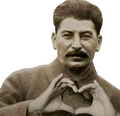I finally watched All Quiet On The Western Front which was brutal and fantastic but it strikes me that I don’t know as much as I would like about this conflict.
What are some good sources for analysis and historical perspectives?
Edit: thank you all for your recommendations and perspectives 


I read it before I really turned left and I know it has some lib brain but I really devoured “1914: the year that ended peace” by MacMillan. It covers all the palace intrigue in a really digestible manner despite being huge. I don’t know if I have ever read a history book that juggled so many characters and events that fucking well. It shows how the institutions meant to stop war broke down, how the war as it was was utterly preventable, but in doing so shows how A war was sorta inevitable, not cause the Balkans are a powder keg but because the concert of europe was inbred and rotten at its core.
It absolutely broke me with how it described the Lost Generation’s elementary school years to the start of the war. Those kids had been promised a world without war, with diseases cured in no time, a technocratic utopia, and also by those same progressives (in the technological sense) that they are not real men unless they fight in a war. The boy scouts started as an all-genders pseudo-military organization explicitly because its founder felt that boys and girls didn’t have the proper survival capabilities and that they needed to learn how to hunt wild game and stich wounds and shit at the age of 10. They promised them utopia and oblivion. It fucking broke me dude.
I would suggest picking a moment you find interesting like Gallipoli or Zeebrugge, or Verdun, or Brusilov’s campaigns, something specific. A lot of the war is self contained almost, and totalizing or even just broad histories of it can be disjointed. Focus on a battle or event and find the passion project someone wrote because their uncle was killed by a stray allied shell there. Personally I want to look more into the Italian Alpine campaign because my namesake, my great great uncle apparently died of mustard gas there.
That is always the tricky thing about large scale events because there are so many threads and people. I think the interesting part for me was the very end of the movie with the final attack on French held trenches right before the armistice went into effect. The German general gave a speech about preserving “honor” and I want to know about this aspect and how it laid the groundwork for what came next.
Storm of Steel the memoirs of Ernst Junger are very highly recommended. I never got around to buying a copy but I have had it recommended so many times. The guy became a Nazi then turned on them but not for a grand moral reason so much as they killed his son. However his contradictory pov that has been described as both glorifying war and anti-war, and his being a young man who was exactly the Prussian archetype make him a perfect case-study. The Russian wikipedia article gives some good analysis if you want https://ru.wikipedia.org/wiki/В_стальных_грозах https://politosophia.org/page/ernst-yunger-v-stalnyh-grozah-mirovoy-voyny.html https://www.amazon.com/dp/0143108255/?coliid=I178UE3BU40311&colid=1JEGNQDCXXPVB&psc=1&ref_=list_c_wl_lv_ov_lig_dp_it
Good article on the mindset of that general and honor https://encyclopedia.1914-1918-online.net/article/wartime_emotions_honour_shame_and_the_ecstasy_of_sacrifice
Origins and meaning of WWI is a brief anarchist rundown of a lot of that officer mindset and what we should take away from the war https://theanarchistlibrary.org/library/john-zerzan-elements-of-refusal#toc12
For an in depth critical view of WW1 and why it happened Mccullough’s work seems interesting https://www.amazon.com/How-First-World-War-Began/dp/1551641402
This whole reading list is leftist and seems amazing
https://network23.org/realww1/2014/03/03/ww1-reading-list/